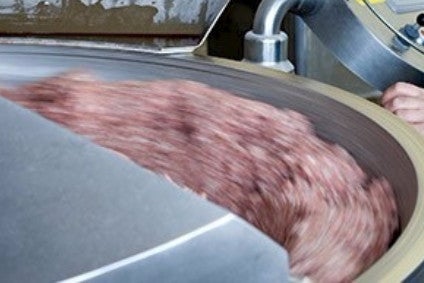
UK consumer demand for beef mince is hitting sales of higher-margin products, which is set to lead to lower prices for the country’s farmers, a trade association has warned.
In late March, UK sales of beef mince jumped, with the majority of beef sold in the UK taking the form of what the British Meat Processors Association (BMPA) calls “low-value cuts”.

Discover B2B Marketing That Performs
Combine business intelligence and editorial excellence to reach engaged professionals across 36 leading media platforms.
Citing Kantar data for the week to 23 March, there was a 45% increase in the amount of beef mince being sold, the association said.
The BMPA warned processors’ cold stores “are almost full to capacity with more expensive cuts of meat, for which there is currently no market”.
The association said: “Most retailers are still avoiding ordering other cuts in favour of buying more mince. The result of this situation is that meat processors are sitting on an unsustainable amount of fresh meat that will have to be frozen and therefore de-valued in the hope that foodservice demand will come back at some point in the future.
“Panic buying has resulted in well-stocked home freezers so, for now, that means demand from retailers will take a sharp slide. Couple that with a loss of workforce capacity in meat plants approaching 20% due to staff absences and the consequent slow down of processing lines, and we are starting to see a drop off in the number of animals being bought. The current situation all points to lower livestock prices.”

US Tariffs are shifting - will you react or anticipate?
Don’t let policy changes catch you off guard. Stay proactive with real-time data and expert analysis.
By GlobalDataThe BMPA had a note of caution for UK beef farmers and said the country’s government may have to intervene.
“While processors can absorb this distorted market demand and price shocks up to a point, it will be impossible to shield producers from a lowering of farmgate prices using mechanisms in the food-supply chain alone. It may require intervention from the Government to support farmers through the current crisis, so we emerge with our farming industry intact and preserve Britain’s essential food security. Alternatively, retailers could help by buying a range of cuts and bring that wider choice to consumers through promotions.”
Across the mainstream UK grocery sector, retailers are, broadly, focused on single price-point promotions, rather than multi-buy discounts, as they work to maintain stocks.





